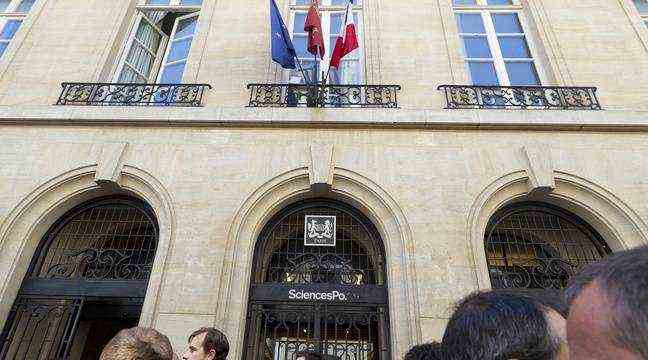The entrance to Sciences-Po Paris. – VINCENT WARTNER / 20 Minutes
Sciences Po continues to strengthen its measures as part of its equal opportunities policy. The prestigious Parisian public establishment announced Monday that it would strengthen its mechanism of Priority Education Conventions (CEP) with high schools, aimed at recruiting young people from disadvantaged areas. To do this, the university will double the number of partner institutions and places reserved for candidates of this program.
Sciences Po has welcomed nearly 2,300 students from this system since the establishment created it 20 years ago. The university had set it up in order to diversify the profile of its students, by reserving places for young people from working-class backgrounds. This program now allows high school students to follow preparation workshops before applying to Sciences Po.
More than 200 partner high schools by 2023
The Paris Institute of Political Studies (IEP) now wishes to strengthen the “social and territorial” impact of the program. “We are going to go from a reception rate for CEP students of 10% of the cohort to 15%”, indicated the provisional administrator of Sciences Po, Bénédicte Durand. The public establishment will also double the number of partner high schools, which will increase from 106 to more than 200 by 2023. “The challenge is to have approved high schools not only in priority education areas, but also in rural areas and small towns or even in the Overseas Territories, until now little represented in the program, even though they are equally concerned by the issue of self-censorship and inequality of access to selective training ”, underlines the institute.
To select high schools, the IEP will take into account the social level of the students as well as the ability of the establishment to integrate at least 50% of scholarship holders into the preparation program. This has also been revised. “We have decided to modify the content of the workshops that will lead to Sciences Po by focusing them more on the transversal skills useful for success in higher education”, specified Bénédicte Durand. Students will discover methodological tools to learn to organize themselves in their work or problematize a subject.
The establishment, which wishes to attract students with diverse backgrounds, has also abolished its selective entrance examination for the first year to replace it with more personalized tests. The new admission procedure is taking place this year via Parcoursup.

